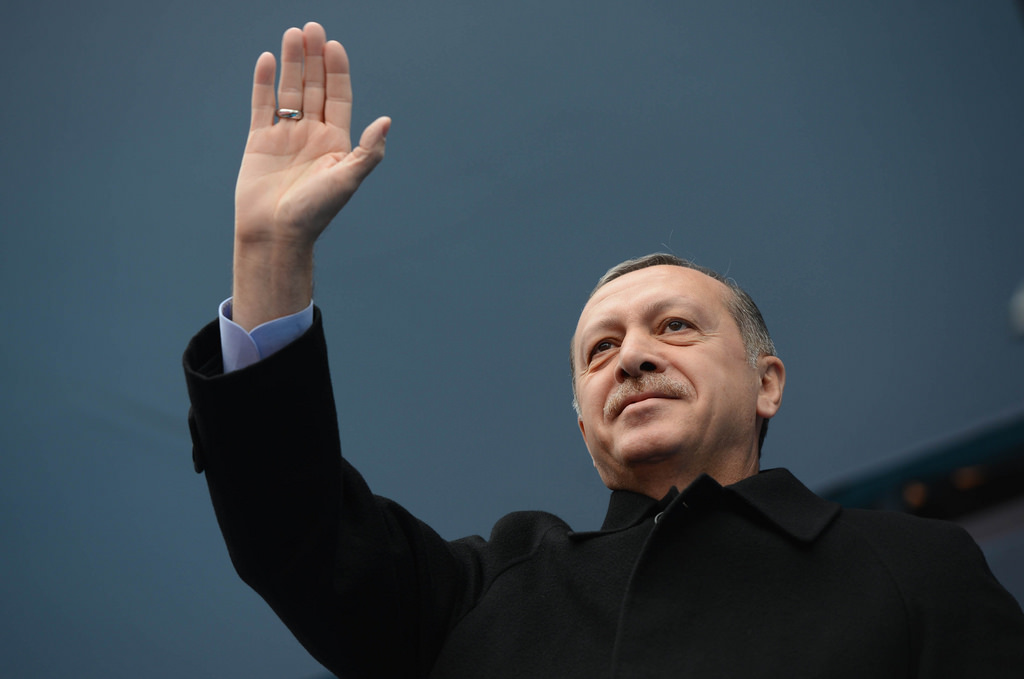by Graham E. Fuller
The dismaying coup events in Turkey may take some time to be resolved. But one thing is already clear—this attempt at military intervention, however the final scenario plays itself out, is a disastrous lose-lose event for everyone in Turkey.
If the military coup against Erdogan “succeeds,” we will have witnessed the return to the ugly tradition of military intervention involving at least four past coups against legitimately elected governments. Nearly all observers (including myself) believed that the half century of regular military coups were finally over. The governing AK Party had seemingly successfully banished the military at long last back to the barracks, with the grateful support of most of the country. If this coup “succeeds” it plunges Turkey back into the same trap of “tutelary oversight” by the military that had been the ugly hallmark of earlier Turkish governance.
Coups generally leave disastrous legacies in countries that are working towards established democracy. How legitimate can any successor government be, when elected with the assistance of the military that pulled the plug on the last government?
AKP supporters who represent the biggest single political bloc in Turkey right now are appropriately enraged at this blatantly illegal effort to overthrow their legitimately elected government. If those seeking to remove Erdogan are doing so on the basis of his domestic religious policies, it will confirm the belief of the large traditional religious segment of the population that the military and the old guard secularists and “Ataturkists,” as usual, are anti-Islam. At a time when externally supported jihadi Islamist movements like ISIS have wreaked havoc in Turkey through their devastating terrorist acts, the factor of religion in domestic politics will be ratcheted up several notches in an dangerous way.
Erdogan will appear a victim to his party’s large number of followers—even a “martyr” if he is jailed. A jailed Erdogan—a legitimately elected president— will be a dangerous presence to any successor government that will operate under the stigma of serving at the discretion of the military.
Class and ideological lines in Turkey will be intensified and move into the realm of more regular political violence. The unresolved Kurdish struggle is likely to grow more violent as well.
Turkish liberals and secularist Kemalists who had come to loathe Erdogan face the choice of either accepting another coup crippling the democratic order, or supporting Erdogan as a legitimate leader despite their intense dislike of his policies. For many liberals, a coup will be perceived as institutionally worse than Erdogan’s arbitrary, autocratic, willful, erratic and self-serving policies of the past few years.
The military will likely be deeply divided over the issue, also not a healthy as the tradition of military intervention into politics is resuscitated yet again. Some kind of broad civil conflict could well emerge that will require military intervention to keep order.
If Erdogan succeeds in crushing the coup, the outlook is hardly better. The military actors involved will have demonstrated their incompetence and their constitutional unreliability. Their institutional prestige will suffer markedly. Worse, Erdogan’s illiberal and authoritarian tendencies, which had grown increasingly disturbing over the past few years, will be hugely strengthened. He will grow more paranoid and self-obsessed. The events will provide him with far more compelling grounds for further crushing of political opposition. Erdogan had already moved to undercut a free press and an independent judiciary and has been seeking to arrogate to himself new powers of a “super-presidency” via constitutional change. An Erdogan who has survived a coup attempt will be far harsher, vindictive and illiberal and will unleash greater political and judicial powers against political opposition.
Erdogan’s mistakes, failings and the growing corruption of his government have already massively discredited his administration. He has been in the process of discrediting and undermining the long series of remarkable accomplishments of his party’s first decade of rule.
It is imperative that Erdogan be removed from power the same way he came to power—by the ballot box. His increasingly irresponsible administration must be voted down and out of office, putting effective end to his claim to being a successful leader any more.
Removing Erdogan by force protects him from the final repudiation — by the voters. No one knows exactly at what point the majority of voters would have turned against him, but that is the process by which all democracies remove failing politicians whose term of office comes to an end. A coup rescues him from such electoral defeat.
The military, or those elements that attempted the coup, may justify their intervention on the basis of rising disorder in Turkey due to the recent spread of terrorism. Erdogan’s disastrous foreign policies over the past few years, and especially in Syria greatly contributed to the rise of jihadi terrorism in Turkey, largely carried out by non-Turks. (These recent foreign policy failures stand in bold contrast to his inspired and successful foreign policies of his early years.)
The coup plotters could conceivably gain some public support for their actions by claiming the need to maintain order in the country in the wake of devastating foreign-inspired terrorist attacks, rather than simply opposing Erdogan’s domestic policies. But if they justify their actions on the basis of “protecting Turkish secularism” they fall into the same tired Kemalist ideological line that has justified every single Turkish coup in modern history. However much Erdogan has exploited religious in his policies, his other failings are far more serious, and “defense of secularism” provides no credible justification for military action.
Whether the coup “succeeds” or fails, it has already done irreparable damage to Turkey’s political tradition and its political future. It besmirches Turkey’s international standing which had seemingly emerged into the bloc of democratic states that had appeared to put an end to force and military intervention in their domestic politics.
However this coup event comes out, Turkey and Turkish politics have lost badly. Erdogan indeed deserves to be defeated on many grounds. But it must be by the ballot box, not by a military coup.
Graham E. Fuller is a former senior CIA official, author of numerous books on the Muslim World; his latest book is “Breaking Faith: A novel of espionage and an American’s crisis of conscience in Pakistan.” (Amazon, Kindle). Reprinted, with permission, from grahamefuller.com






It was clear that the perpetrators had no hopes they would be able to topple Erdogan. The ‘coup’ intent was rather to create further instability, discredit the army, discourage foreign investments, instillate doubts about foreign powers and bring the economy to its knees. With an economical crisis creeping, the ruling party and his leader Erdogan will finally loose their credibility.
If Fuller thinks there will be a time when Erdogan will allow an election in which there will be a risk that he might lose, I have a bridge in Brooklyn I would like to sell him. There is no way there will be any more free elections under Erdogan.
The history of the military in Turkish politics is not all negative. It has represented a secular tradition.